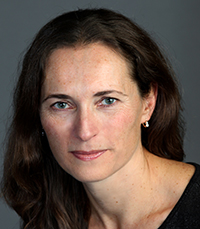Special Reports
MA Top 30 Professional: Véronique Firkusny

Executive Director
Avery Fisher Artist Program
Every year Véronique Firkusny gets to make some of the most enjoyable phone calls in classical music.
As executive director of the Avery Fisher Artist Program at Lincoln Center, she gets to call young musicians and ensembles to tell them they have won a $25,000 Avery Fisher Career Grant. Candidates, up to five a year, have no idea they are being considered. The program’s 130-member recommendation board submits names to an executive committee, which makes the final selections.
And some years she will phone a more established artist, most recently violinist Hilary Hahn, to tell them they have won the $100,000 Avery Fisher Prize, given in recognition of distinguished career achievement.
“Everything that’s done is done confidentially,” says Firkusny. “ The only call you get is if you’ve been selected, so there’s no disappointment. I think that’s very special.”
An amateur violinist and millionaire radio and electronics pioneer, Fisher set up the program 50 years ago. He loathed the idea of musical competitions, says Firkusny. And from the beginning, the grants and prize have been limited to American artists or those permanently residing in the U.S.
“He felt young European artists had more opportunities, more competitions,” she says. “He wanted to give American musicians a leg up.”
Firkusny, the daughter of legendary Czech pianist Rudolf Firkusny, is also a highly regarded translator of Czech literature and a Czech diction coach for opera singers. She has been involved with the Avery Fisher Artist Program since 2003 and became its executive director in 2016.
Today a major focus is to “make sure the recommendation board is expanding, that it’s current,” she says. “And as much as possible that it reflects the diversity and scope of where talent can be found.”
And musicians are taking Fisher’s prizes in unexpected directions.
“There was a time when really all that was expected of classical musicians was to be singularly devoted to their art form and perform it at a level of excellence,” she says. “Now expectations have evolved
to include a strong sense of social and community involvement.”





 FEATURED JOBS
FEATURED JOBS

 RENT A PHOTO
RENT A PHOTO


